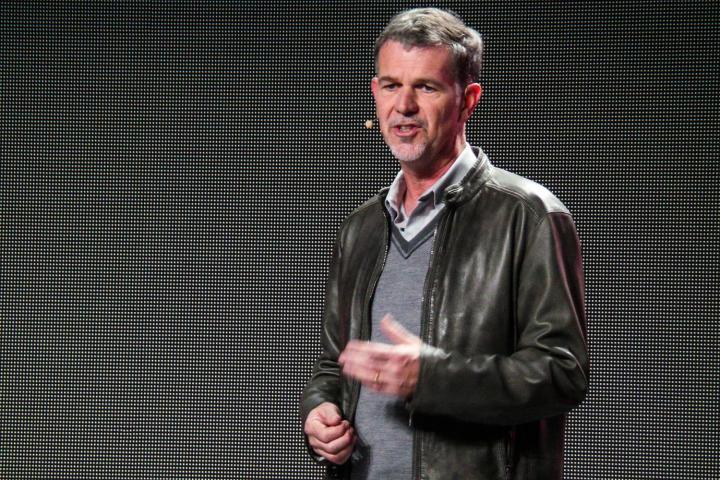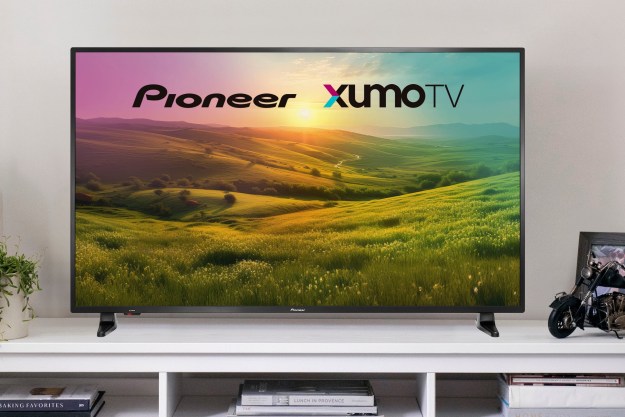
Let’s face it: Net neutrality is boring, complicated, and a bit of a drag. Annoyingly, it’s also one of the most important issues facing the Internet today. Which is why a recent Washington, DC, appeals court ruling effectively abolishing the federal government’s net neutrality rules means the future of the Internet is, at best, uncertain. At worst, the Internet as we know it is doomed.
If Netflix’s business is really under threat, why isn’t the company freaking out?
The poster child for this uncertainty is Netflix, the video-streaming service that accounts for more than 30 percent of North American Internet traffic every night – far more than any other consumer-facing Web service, making it a prime target for money-hungry ISPs. So, when Netflix released its first statement on net neutrality’s “death” earlier this week, everyone took notice. Would it come out swinging?
“In the long-term, we think Netflix and consumers are best served by strong network neutrality across all networks, including wireless,” Netflix concluded, according to Business Insider. “To the degree that ISPs adhere to a meaningful voluntary code of conduct, less regulation is warranted. To the degree that some aggressive ISPs start impeding specific data flows, more regulation would clearly be needed.”
Them’s fightin’ words! Or, uh, wait … them’s perfectly reasonable, level-headed words. If Netflix’s business is really under threat without the cover of FCC net neutrality rules, as so many in the media (including yours truly) have said, why isn’t the company freaking out?
What’s net neutrality mean again?
Before we get into that, let’s take a step back. If you don’t quite grasp what the heck net neutrality is, you’re not alone; it means a million different things to a million different people. (And technical people will tell you that it never has truly existed, and never will.) But for the purposes of this discussion, I’m going to say it means this: Net neutrality is the principle that all types of data, from every source, should be delivered equally by connections provided by Internet Service providers. It means ISPs can’t block whatever content they want to block, nor can they speed up or slow down Internet speeds for particular Internet-based services.
Until recently, the Federal Communications Commission helped ensure that this was (mostly) true through its Open Internet Order, a set of rules defining what ISPs may not do … which are now essentially dead in the water due to that aforementioned court ruling. ISPs like Verizon, whose lawsuit against the FCC put Net neutrality on the ropes, don’t believe the federal government should dictate how it does business. Net neutrality proponents, on the other hand, believe broadband Internet should be regulated like a utility. Just as your electric company must deliver the same level of electricity no matter what you plug in, so too should ISPs deliver the same quality of Internet service no matter what type of content is flowing through the pipes.

Without net neutrality rules, then, ISPs could charge Netflix more money for delivering its data-heavy service. Or it could charge customers more for an “open” Internet connection (the same thing we have enjoyed thus far), or lower prices for more restricted access to the Web, with partner services paying to reach more users.
A (too) balanced approach
Netflix fully recognizes that net neutrality is dead. “In principle, a domestic ISP now can legally impede the video streams that members request from Netflix, degrading the experience we jointly provide,” the company writes. “The motivation could be to get Netflix to pay fees to stop this degradation.”
Netflix does not anticipate this becoming a widespread problem. “The most likely case … is that ISPs will avoid this consumer-unfriendly path of discrimination,” it writes. But, “were this draconian scenario to unfold with some ISPs,” says Netflix, “we would vigorously protest and encourage our members to demand the open Internet they are paying their ISP to deliver.”
Now, that’s the kind of muscle-flexing I and others expected to see from Netflix. Only problem is, many Netflix members in the US have virtually zero power to protest the way their ISPs do business because they have nowhere else to turn for Internet service. I, for example, have a total of one company that runs Internet to my relatively rural home. I hate that company (for non-net-neutrality reasons). But I still have to suck it up each month and pay an outrageous amount of money for sub-par service.
Change we can wish for
So where does that leave Netflix and us, its users? It leaves us with one place to turn: Washington, DC. We may not be able to protest ISPs with our wallets. But we can still protest through political action. If there could ever be the “next SOPA” (remember that?) net neutrality could be it.
We need to get out of the weeds in this debate, and start throwing punches before this beast really gets out of its cage.
Fortunately, the fight for net neutrality could be easier than the fight against the Stop Online Piracy Act. The appeals court ruling against FCC net neutrality rules did proponents of the principle a favor: It affirmed the FCC’s authority to regulate broadband (just not in the way it was doing before). All the FCC needs to do is deem ISPs “common carriers,” the category that includes phone companies, and it can reestablish net neutrality.
I say “all the FCC needs to do” like this would be easy. There are plenty of powerful organizations, businesses, and people (including Members of Congress) who believe that ISPs shouldn’t be restricted by federal regulation. That means President Obama, who can direct the FCC to act, and Congress, who can help or hurt the net neutrality movement, need us to provide the political capital to push back against the moneyed anti-net-neutrality interests.
Fight the powers that be
The grassroots movement for net neutrality has been in place for years, and is sparking up once again now. But, as I said at the beginning, net neutrality is boring and complicated. Add in a scenario in which ISPs offer cheaper (even free!) – but highly restricted – Internet service, and it’s easy to see how many Americans will quickly lose interest in the this fight.
If we’re going to win back the open Internet we’ve enjoyed thus far, net-neutrality proponents – Netflix included – need to ramp up the rhetoric. We need fighting words. We need to get out of the weeds in this debate, and start throwing punches before this beast really gets out of its cage.


